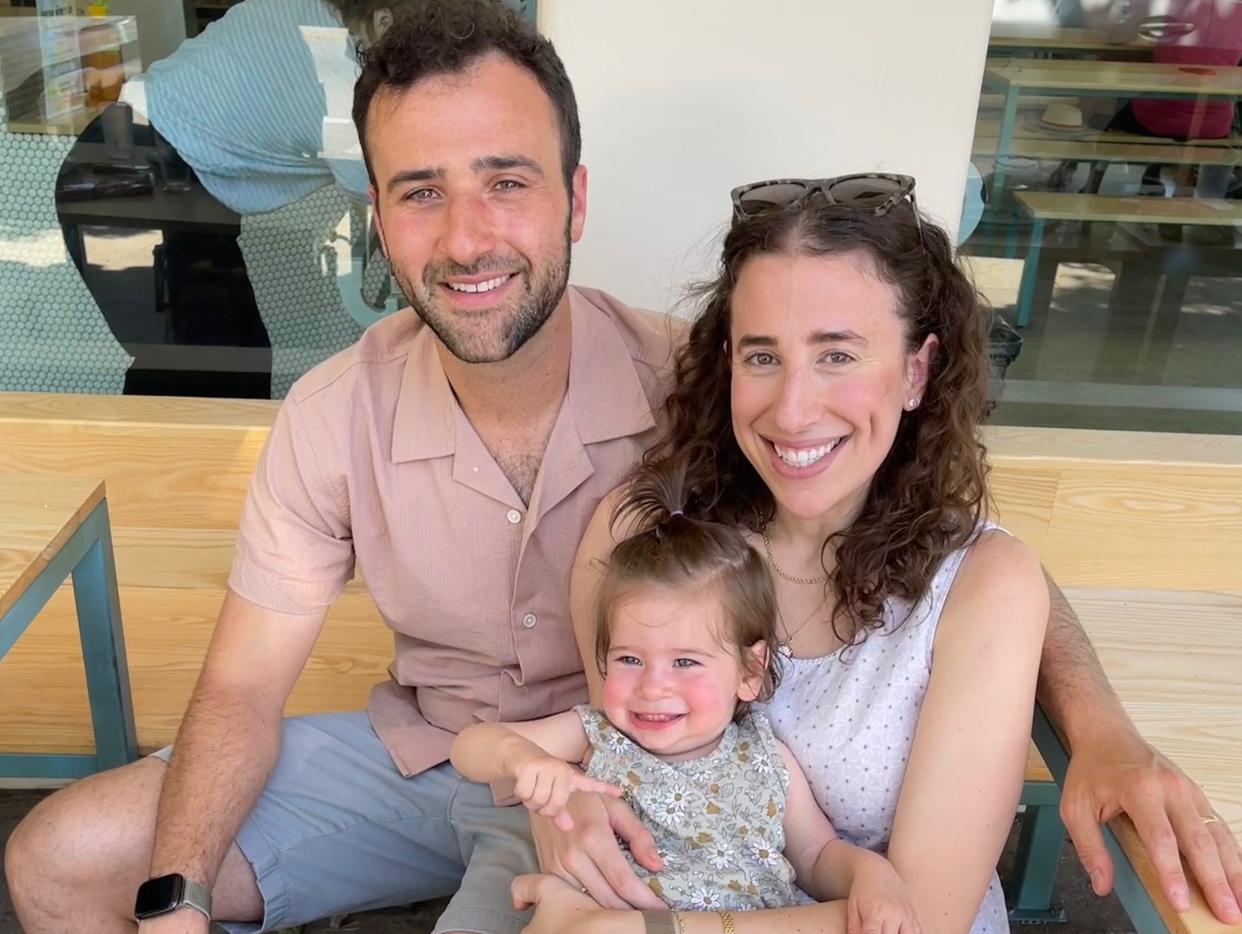My sister froze her eggs for me after I was diagnosed with a rare disease. It gave me peace of mind to know I could start a family.

At 28, Lauren Makler was diagnosed with a disease that only 200 people have.
Doctors weren't sure how it would impact her fertility, so Makler's sister froze eggs for her to use if needed.
This is Makler's story, as told to Kelly Burch.
This as-told-to essay is based on a conversation with Lauren Makler. It has been edited for length and clarity.
Five years ago, I was thriving in my career, working as the founder and head of strategy for Uber Health. I had just met a great guy. But then, I experienced a pain in my side that just wouldn't go away. At just 28, I was diagnosed with a disease that only 200 people globally had. It caused masses to grow throughout my abdomen, and doctors had no idea what that meant for my future fertility.
I knew I wanted to be a mother, and I'm a very pragmatic person. The masses would be removed through three surgeries, but doctors told me there was a risk I could wake up with no reproductive organs. With that massive unknown, I wanted to take steps to keep as many options for building my family on the table as possible.
Doctors weren't sure if it was safe for me to go through the egg freezing process. I started looking into egg donation, but the transactional nature felt icky to me. Then, my sister offered to freeze her eggs for me. She already had children of her own, who I love dearly. She wanted me to have that experience of being a mother, no matter what.
Because of that gift, I went into my surgeries with peace of mind. My end goal was becoming a parent someday, and I became comfortable being flexible on the how.
I was shocked when I conceived on my own
I had met my now-husband just two months before my diagnosis. When I was exploring my fertility options, I brought my best friend to the appointments rather than my boyfriend. Having him there felt like too much pressure, too early. And yet, through the process of dealing with my disease, it became clear that he was the one.
We married and I had three surgeries. My doctor advised me to wait a year before trying to get pregnant, so we did. In the sixth month of trying, we conceived. It was a shock and a relief.
My daughter is now 17 months old. I would like to grow my family more, and I take that day by day. My sister's eggs still provide peace of mind, even though I know they're not a guarantee.
I wanted to improve reproductive health
After my daughter was born, I felt an incredible sense of wonder. It became immensely clear to me that I wanted to build something in reproductive health. I had seen how egg donation and freezing were financially, emotionally and physically taxing. The whole system felt antiquated. I wanted a better system for women who were freezing their eggs, intended parents using donor eggs, and people who are donor-conceived.
I founded Cofertility with two other women who understood the world of reproductive health and thought we could be better. We aim to provide honest, reliable information about assisted reproduction. Recently, we announced our split program. It allows women who qualify to freeze their eggs for free, when they donate half to people in need of eggs.
Egg donation is no guarantee, but it can increase your odds of having a baby if you have fertility challenges. Yet, access to this tool is a huge issue. The best time to freeze your eggs is when you're least able to afford and, and when no one is talking to you about it.
That's beginning to change. WhenJennifer Aniston said she wished someone told her to freeze her eggs, it was incredible. For me and other women, egg freezing can provide some comfort and a degree of control over family planning. It's so meaningful to have people like Aniston willing to share their story and give that advice to younger women.
Read the original article on Insider

